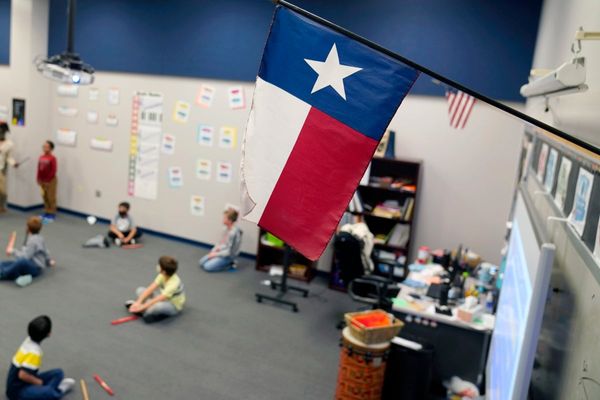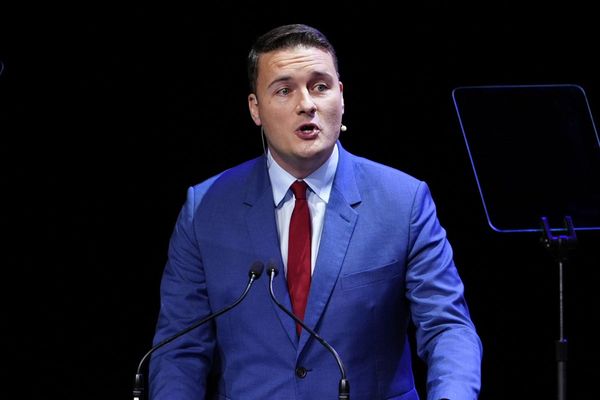
K–12 education is facing tremendous challenges. Reading and math scores have fallen to their lowest level in decades. Nearly a third of educators are thinking of leaving their jobs. The surgeon general has called the decline in youth mental health the “defining public health crisis of our time” amid a national shortage of school psychologists and social workers.
This is all happening against the backdrop of high-profile ideological battles around school curriculums and vast disparities in school funding depending on where you live. The opportunity gap between our poorest, most vulnerable students and the most affluent has existed for centuries, but it’s widening even further in the wake of the pandemic.
Educators know that critically important subjects such as basic personal finance and mental health education have the potential to help close this opportunity gap. In fact, 23 states now require schools to offer personal finance in high school, and at least 20 states include mental health in their health standards; however, these mandates often go unfunded. And if they are funded, priorities often vary with changing school administrations, governors, and other policy changes, creating a whiplash effect of here today and gone tomorrow. If governments aren’t adequately addressing this, who will?
When political battle lines extend into the classroom, it impedes progress and distracts from the many onerous challenges already burdening our educational system. What educators need is help and support, not more roadblocks. While there is no one-size-fits-all solution, corporate America and foundations have the unique means and incentive to address this missing learning layer in K–12 education and ensure our system is serving students’ and citizens’ needs well into the future.
The power of purpose-driven companies
To address this missing learning layer, companies need to rethink their corporate social responsibility (CSR) programs to make education and community impact a central pillar of their strategy. We call this “CSR 2.0,” and it places purpose-driven companies in the leadership position of partnering with school districts to empower students with skills that will help them succeed in the workforce and in life.
These community education programs harness the growing power of socially minded companies, providing a win-win solution that helps corporations stay focused on making a real societal impact even as the national rhetoric around ESG becomes more politicized, polarizing, and distracting.
No matter which side of the aisle we sit on, I think we can all agree that learning about bankruptcies and medical bills isn’t “woke.” Topics like saving, investing, managing student debt, or learning how to spot signs of depression in a friend are neither liberal nor conservative. They are skills we all need to navigate life, and it is essential that they are taught in schools right now.
Community education programs can come in many forms but center on the idea that companies can—and should—step in to fund the scalable deployment of curriculums that address these under-taught subjects, enabling educators to implement these programs at no cost to schools or taxpayers. When it comes to building the missing learning layer, in many cases, corporate dollars can be more predictable and reliable than public funds.
With that said, let’s be clear: We’re not talking about corporate charity; corporate impact is serious business. Research has shown that purpose-driven companies with a clear perception of authenticity see higher market share gains and grow three times as fast on average than their competitors, all while achieving higher workforce and customer satisfaction.
Purpose and authenticity are especially important to millennials and Generation Z, who want to buy from and work for companies that align with their values. A recent McKinsey & Co. survey found that among those who said they recently switched brands, the biggest reason cited was the company’s purpose and alignment with their values. As millennials, Gen Z, and younger generations become the dominant American consumers, the importance of purpose will only grow.
Real results, real impact
For over a decade, EVERFI has partnered with pioneering companies like Edward Jones, Guardian, Truist, the NFL, and the MassMutual Foundation that have made purpose central to their business. In turn, these companies have backed up their purpose with tangible, meaningful community impact programs that teach students the important and practical subjects they likely wouldn’t learn about otherwise. Things like how to open a bank account and the challenges of credit card debt. Or how to spot mental health warning signs. Or how to prepare for careers of the future.
With scalable educational programs from EVERFI and partnerships with school districts, schools, and teachers, these companies have been able to make a real impact, collectively reaching more than 46 million learners. And rigorous data proves that they’re graduating from these programs with significantly deeper knowledge about the subjects than when they started.
Simply good business
Our nation’s education system is at an inflection point. Issues as varied as funding shortages, ideological battles, a youth mental health crisis, and disparities in access to opportunity are all converging to create a sobering national education emergency.
Yet corporate America is a massive, mostly untapped resource that can help drive innovative community education impact programs as part of their reimagined corporate social responsibility initiatives. The best part? These solutions have been proven to work, provide educators the support and resources they desperately need, are available today, and don’t cost schools or taxpayers anything.
Forward-looking companies are realizing that CSR 2.0 is good for business, good for people, and good for the country. These companies are stepping up to connect their sense of purpose with real action that’s making a difference in the lives of millions of students.
Who else is in?
Tom Davidson is the founder and CEO of EVERFI from Blackbaud. EVERFI is a founding partner of Fortune’s Impact Initiative.







